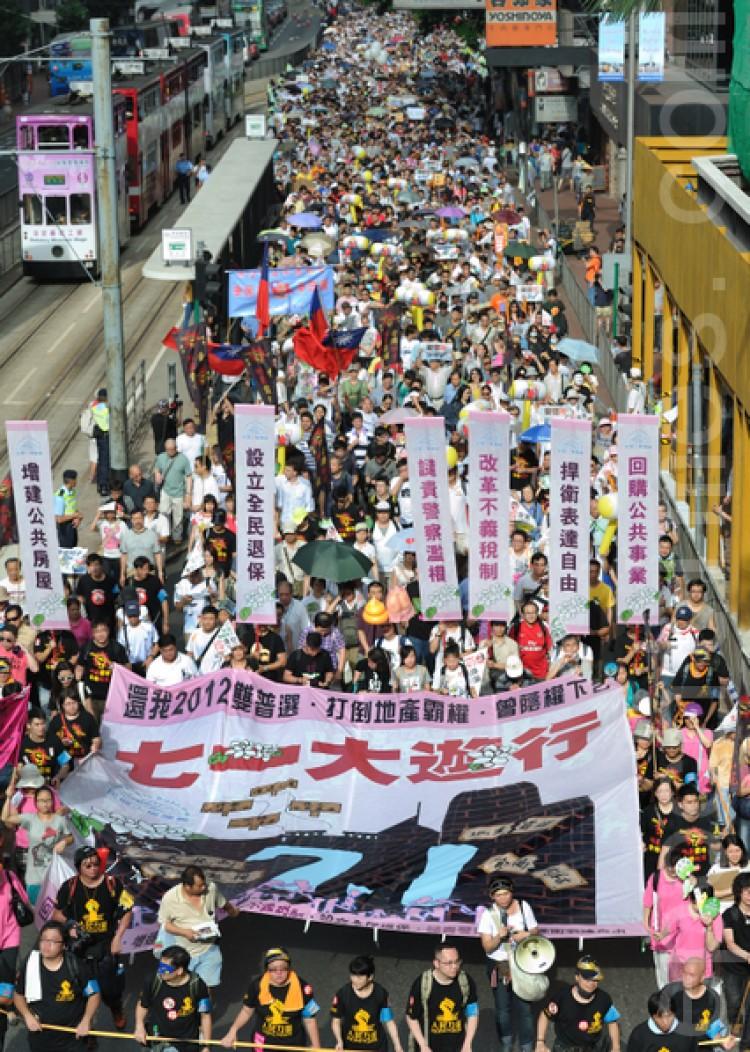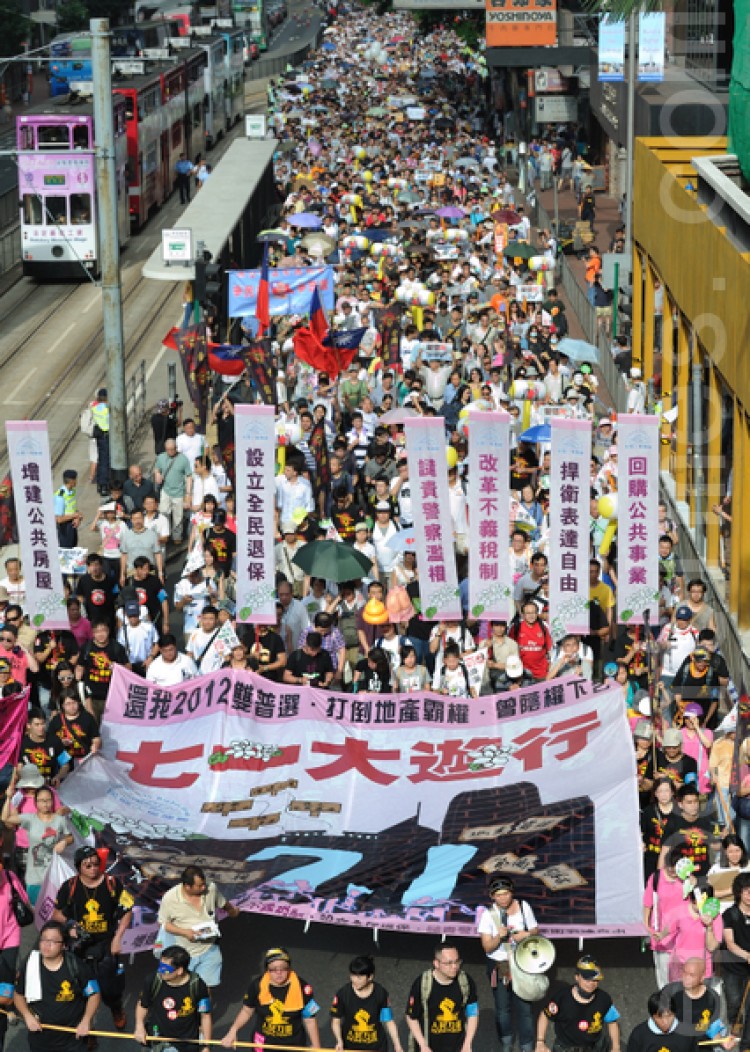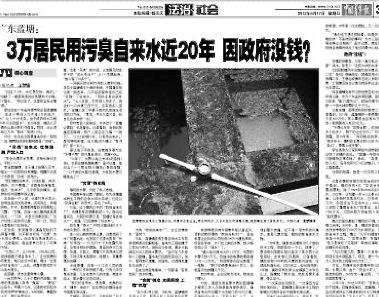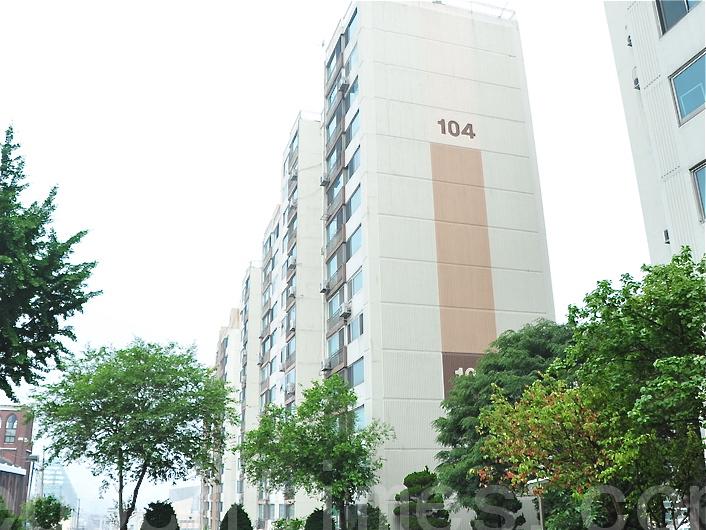Hong Kong Marchers Challenge Ban on Music, Voice Discontent
Hong Kong’s July 1 parade featured some public acts of civil disobedience, including several groups marching in the parade on Friday braving possible arrest by engaging in a banned activity: playing music.
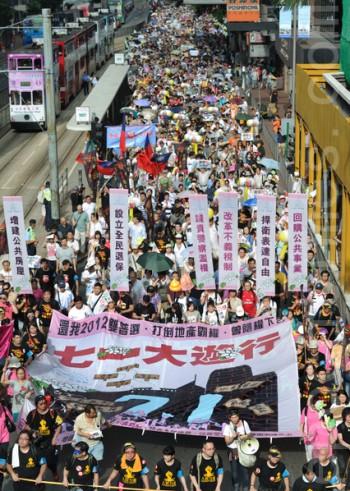
Hong Kong's annual July 1 parade featured some very public acts of civil disobedience in response to authorities' attempts to restrict an event famous for championing Hong Kong's freedom. Song Xianglong/Epoch Times Staff
|Updated:
